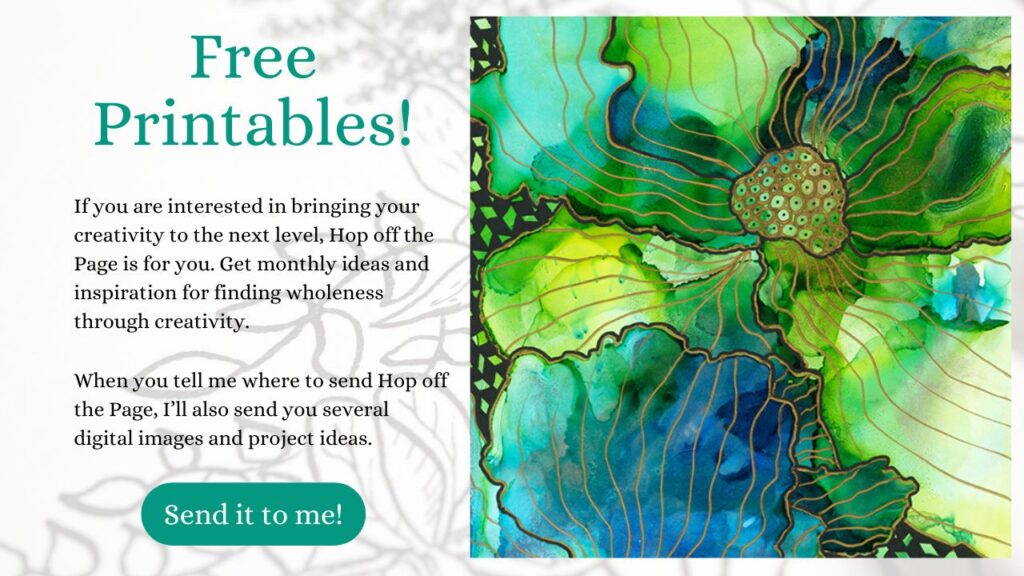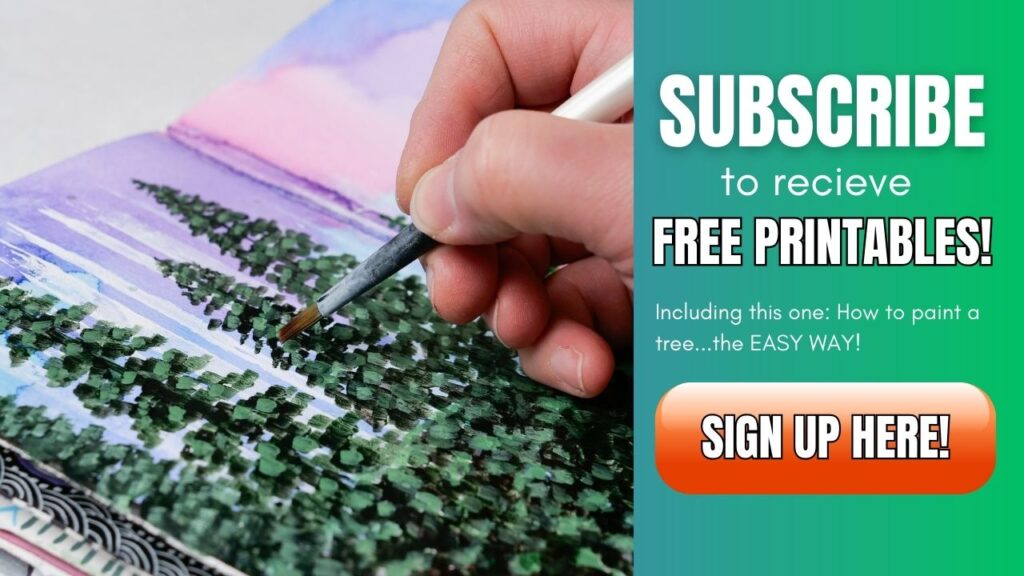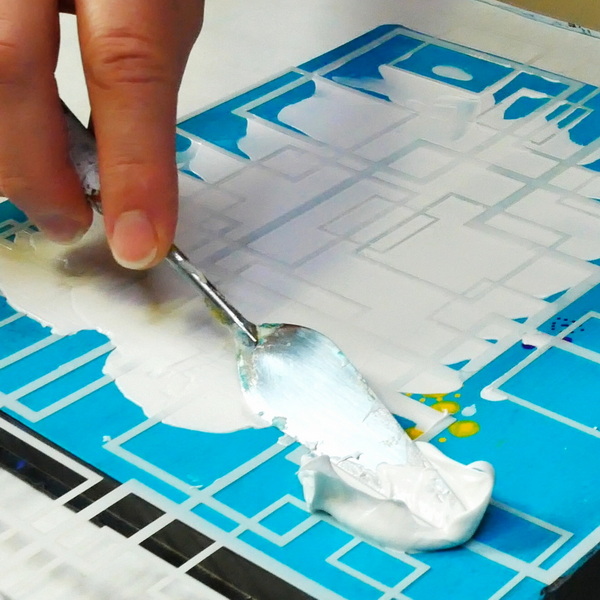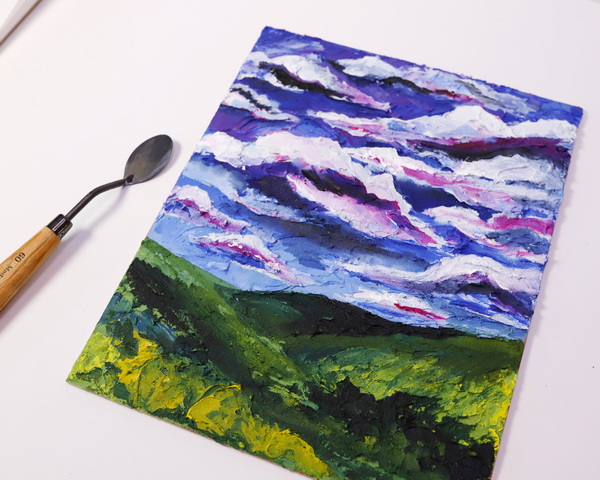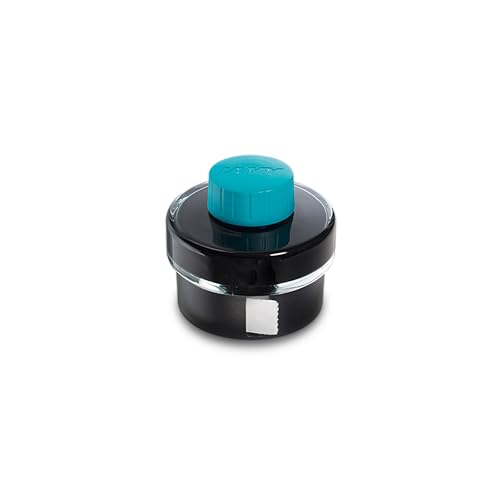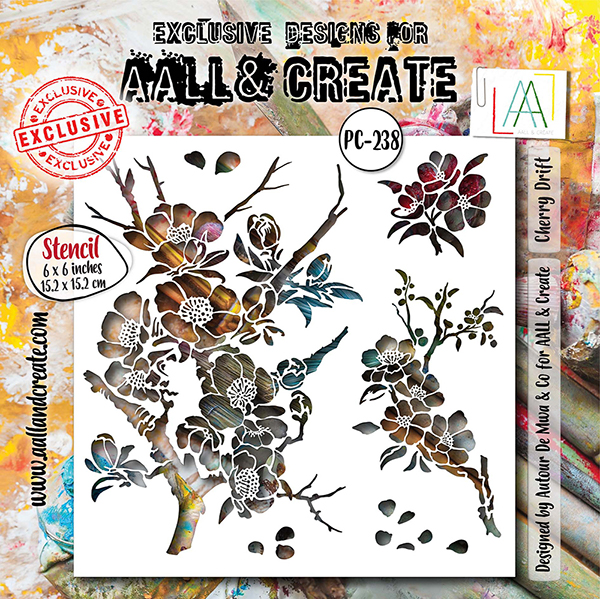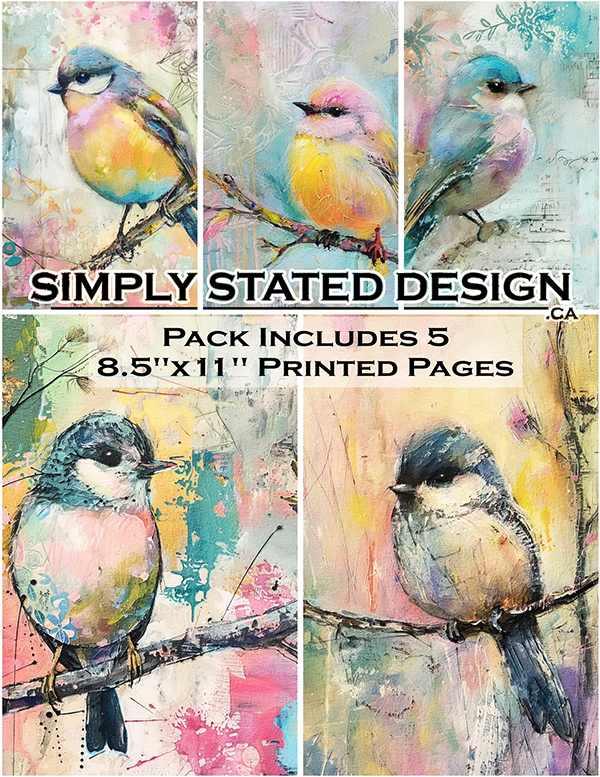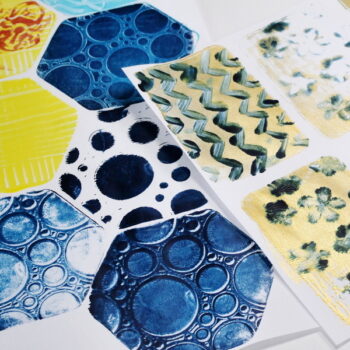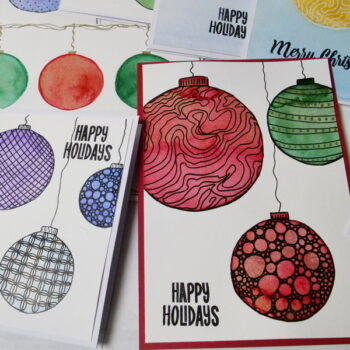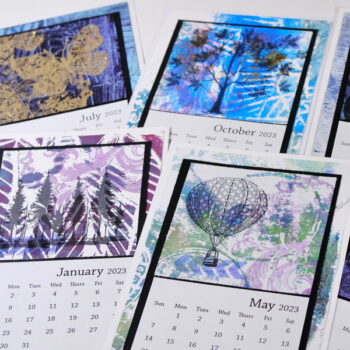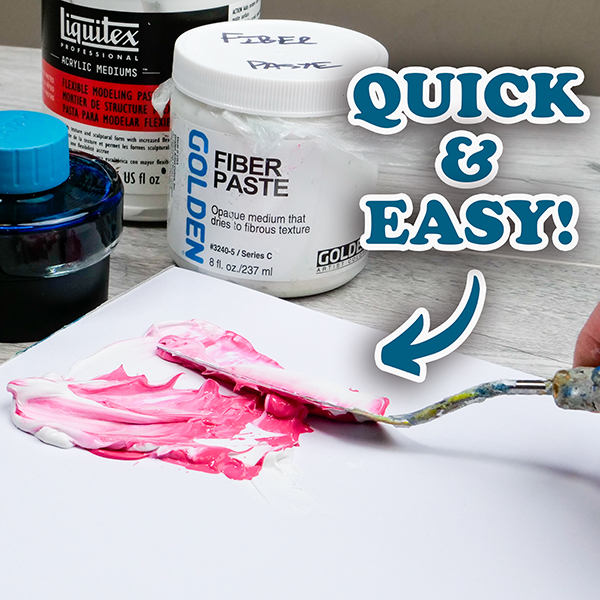
From White to WOW: How to Tint Acrylic Pastes
Not sure how to get the most out of your modeling paste or acrylic mediums? You’re not alone—and today, I’m going to show you exactly how to tint acrylic pastes and transform them to fit your creative projects. Whether you’re looking to save money, customize your textures, or simply get more from the supplies you already have, these easy, practical tips will open up a whole new range of possibilities in your art practice.
Hop-A-Long Studio is reader-supported. When you buy through links on our site, we may earn an affiliate commission at no cost to you. Learn more.
Why Tint Acrylic Pastes?
So why should you want to learn how to tint acrylic pastes? Not only does it save you money, but it also allows you to create custom colors.
When I started using pastes, I purchased them from my local craft store. I would pay a lot of money for each of these individual colors thinking that this is the only way that I could get colored pastes to use on my projects.
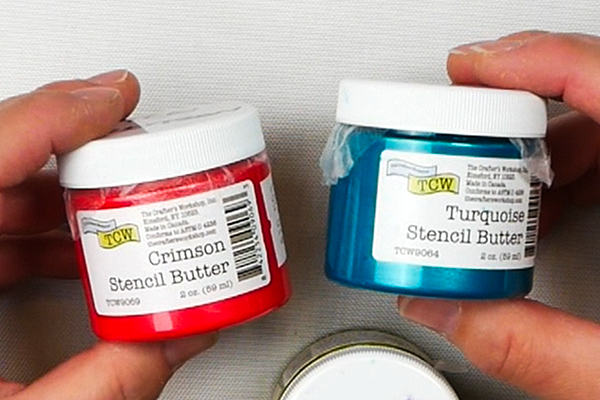
Then I attended a demo by artist Samantha Williams-Chapelsky, and she showed how to alter and color pastes. This opened my eyes to amazing possibilities with these mediums!
How to Tint Pastes
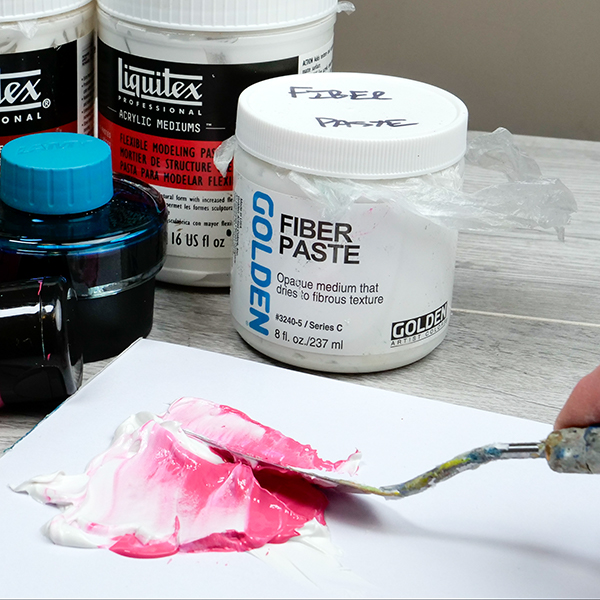
You may have gone into an art store and noticed that they only have paste in one color: white. The reason it comes in white is that you have the flexibility to tint the acrylic paste any color that you want! You’re not stuck with one color or having to pay for each color of paste. You have an entire container that you can turn into as many colors as you’d like!
Working with Modeling Paste
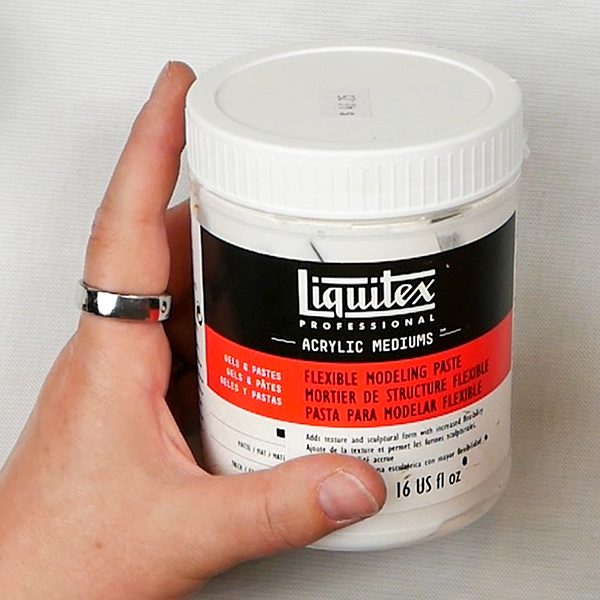
There’s a lot of different pastes out there, but I’ll be demonstrating with a well-known paste: modeling paste. It’s also often referred to as molding paste. If you’re in a craft store, it may go by names like Opaque Texture Paste or Stencil Butter. I tend to use the Golden and Liquitex brands, but there are less expensive pastes that come in smaller quantities from quite a few different manufacturers.
What makes modeling paste a fabulous product is that it is made combining acrylic medium with marble dust. This makes it incredibly strong and durable, making it the perfect choice for many of our projects.
Liquitex Modeling Paste is a thick, clay-like putty formulated with an acrylic polymer base and marble dust. Use alone or combine with acrylic colors to build forms and structures on rigid substrates.
Tinting Pastes with Acrylic Paint
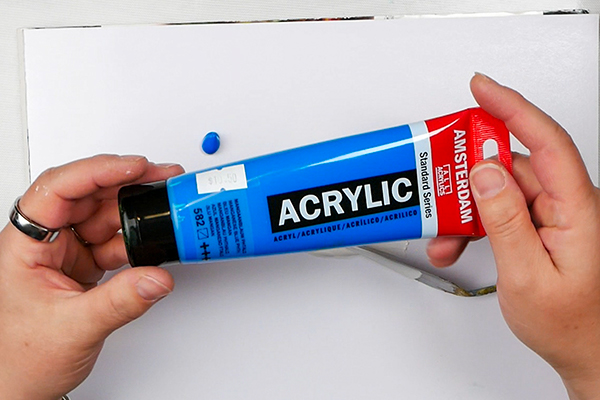
There’s lots of products that we can use to tint and color our modelling paste. My favorite is acrylic paint. Student and professional acrylic paints have strong pigments, so you only need a little bit of paint to tint your paste. Just know that the higher the grade of acrylic paint that you use, the more pigment is in the paint. This means you’ll get more intense color using less paint.
Proudly crafted in the Netherlands, these acrylic paints are value priced and easy to use, making them an excellent choice for the beginning or intermediate artist. They can be mixed with water or mediums, and clean up requires only soap and water.
Put a dollop of modelling paste on your palette paper, then add a small amount of acrylic to color the paste. You can create very light colors using just a touch of paint.
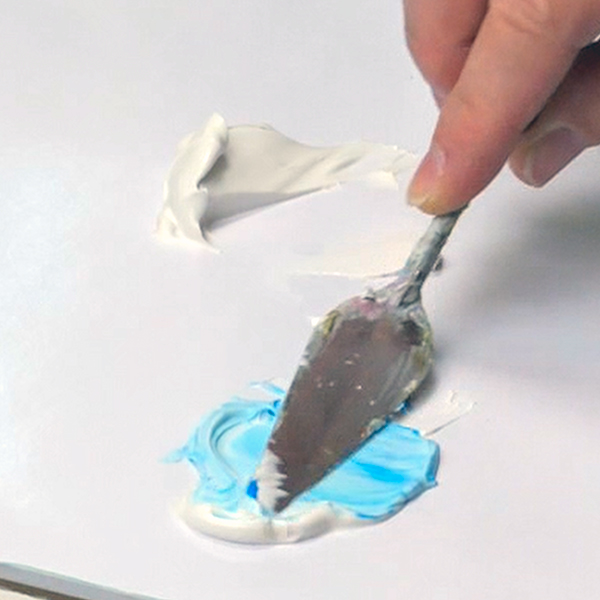
But as you continue to add more paint, the modelling paste will continue to darken to a deeper shade.
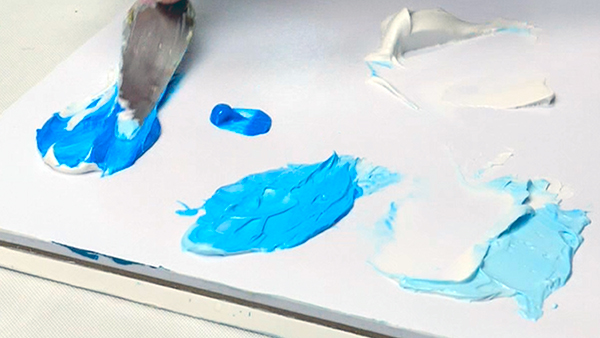
Tinting Acrylic Pastes with Inks
Using the same method, you can use dye or pigment ink pad re-inkers for coloring your pastes. Depending on the translucency or opacity of your ink, this will affect how much ink you need to use to tint the paste.
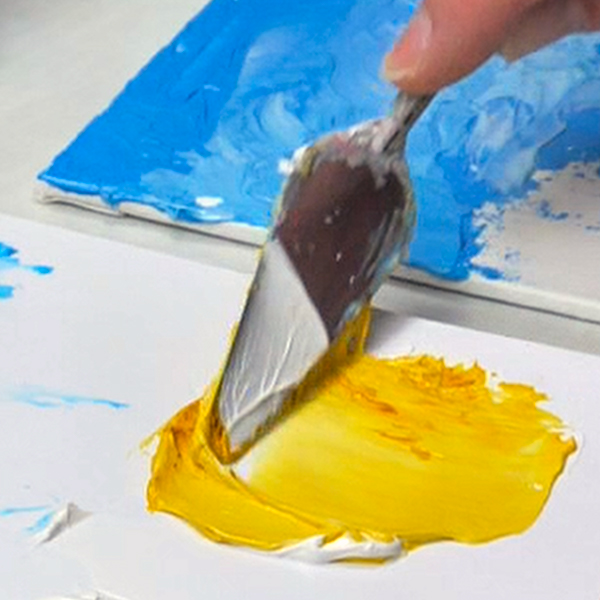
I also use fountain pen ink for tinting. Anything that has a liquid pigment or dye color will work for tinting pastes.
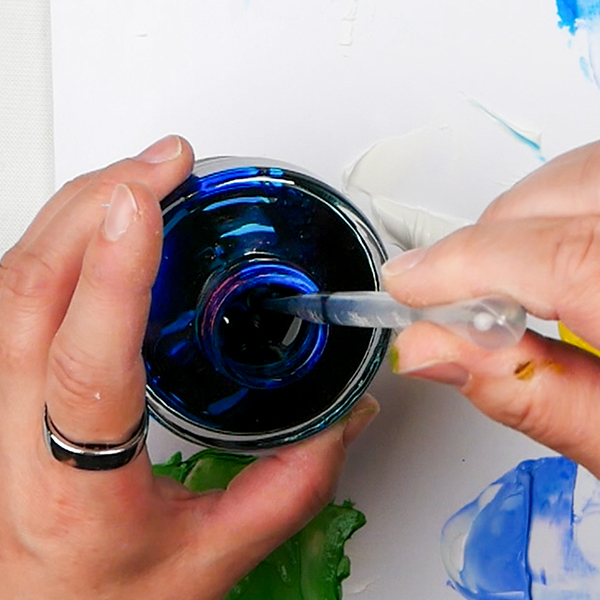
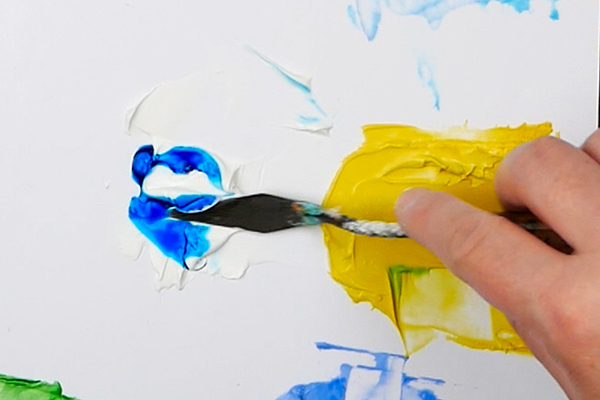
How Do You Tint Other Pastes?
Whether you’re using fiber paste, light molding paste, coarse molding paste or any other type of paste, this technique for tinting acrylic pastes will work for all of them.
The Exception
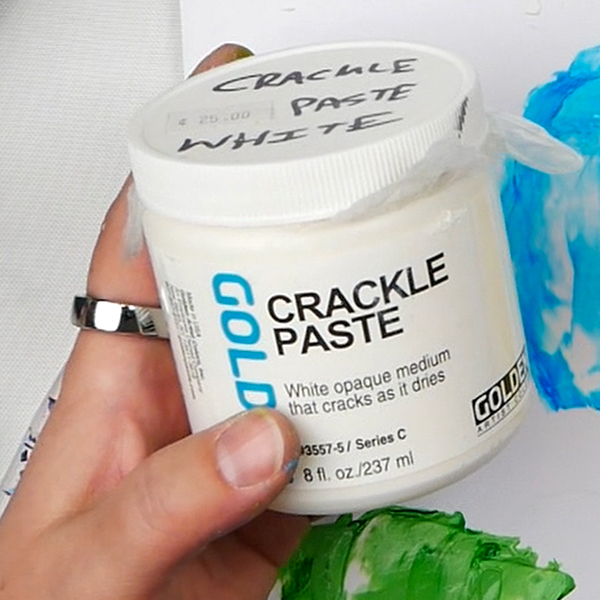
The only paste I would not tint is crackle paste. Part of the chemistry to make crackle paste crack is the air in the paste. If you mix it with paint, you’re probably not going to get the crackle effect.
Any time I work with crackle paste, I apply it without color and work the paste as little as possible to get the best cracks. After the paste is dry and cracked, then I add color on top.
Tinting Pastes with Metallic Paints
If you’ve ever tried tinting acrylic pastes with metallic paints, you’ll notice that you don’t get great results. You can see when I mix gold metallic paint into paste, it turns into a sand color with very little shimmer. It’s going to be very hard to get the shine that you’re looking for.
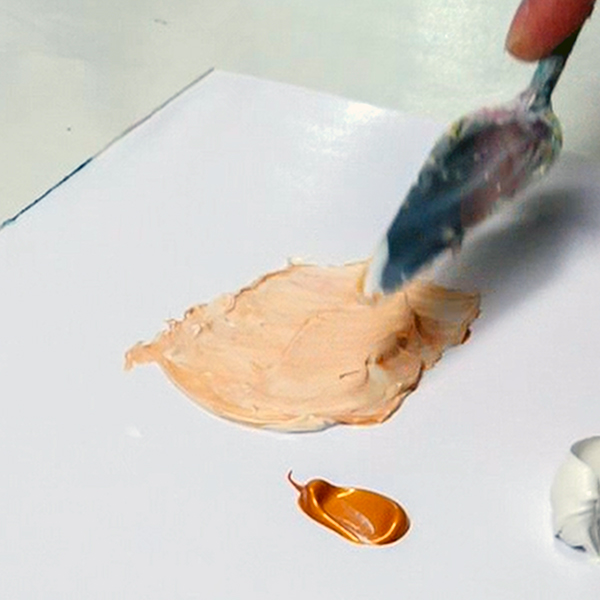
This is where we need to set aside our acrylic pastes and use our acrylic gels.
What are Acrylic Gels?
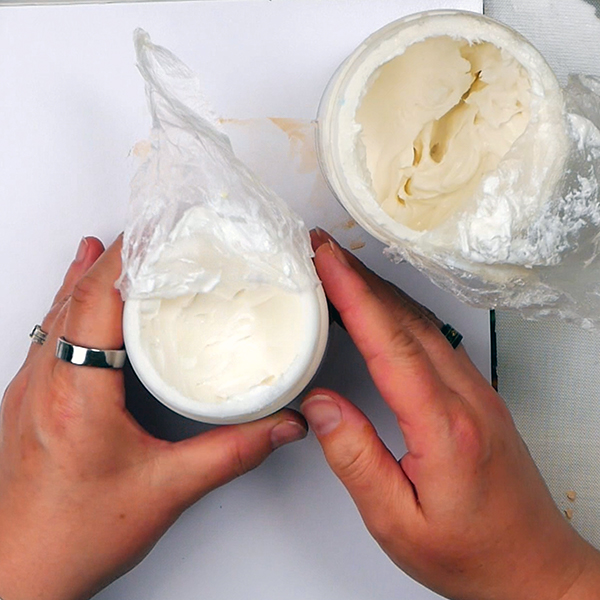
Acrylic gels aren’t as well known in the craft industry, but if you see “heavy body gel” or “soft gloss gel” for companies like Art Basics, these are acrylic gels. Ranger markets them as Translucent Texture Paste (even though it isn’t truly a paste). You might also see it marketed as collage medium.
These all fall into the category of acrylic gels. They are versatile not only as a collage glue but can be tinted and built up to create texture on projects. Make sure to check out my article on the best collage glues to see more ways that you can use these mediums!
Gel mediums are basically the base material of paint without the pigment or color added into it.
Thinner than Golden Heavy Body Acrylic colors, the Golden Soft Acrylic Gel Mediums are moderately pourable, hold only slight peaks, and are ideal for glazing and other techniques that require transparency.
Regular Gel Semi-Gloss is a translucent medium with a consistency similar to Heavy Body paints. Use for extending colors, altering sheen, increasing translucency and adhering collage elements.
Thicker in consistency than Golden Heavy Body Acrylics, the Golden Heavy Acrylic Gel Mediums hold peaks and dry translucent. They're ideal for thickening, altering sheen, and increasing translucency of acrylic paint.
Golden Extra Heavy Acrylic Gel Mediums holds peaks well and is ideal for impasto techniques. Along with the High Solid Gel, it's the thickest of the Golden gels.
Golden Acrylic Gel Mediums also act as adhesives in collage and mixed media projects that dry to form continuous films, offering excellent flexibility and resistance to chemicals, water, and ultraviolet light.
The Difference Between Pastes and Gels
The main difference between pastes and gels is that even though both look white or cloudy, where the pastes will be opaque when they dry, the gels will dry clear.
When you mix the pastes with color when they are wet, the color will stay the same when dry.
For gels, the color will shift as they dry. This is why they are a great option for metallics and other paints that will not work well mixed with a white or opaque medium. This is a way of getting stunning metallics with great texture.
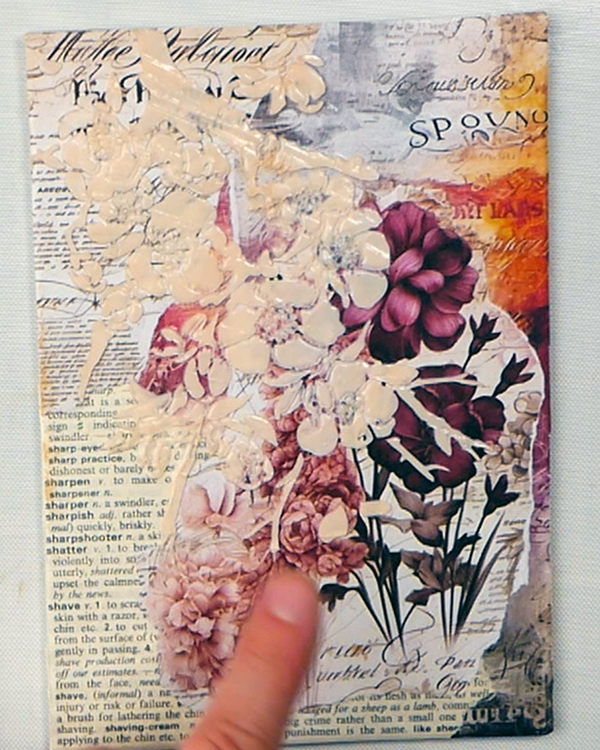
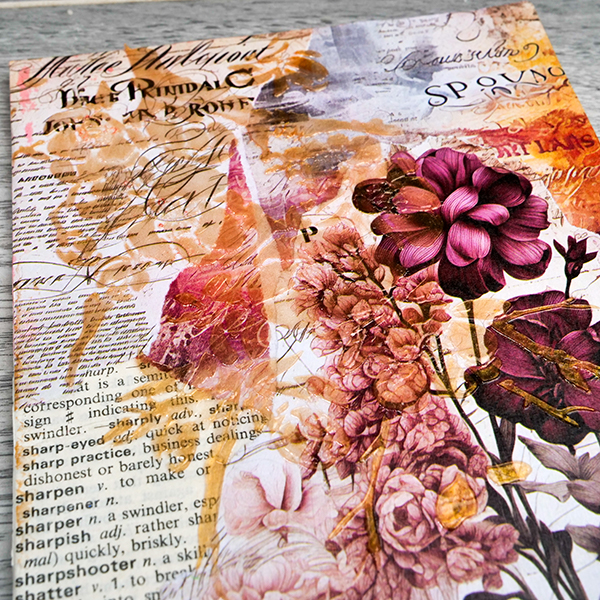
Tinting Acrylic Gels
Tinting acrylic gels is challenging because once you mix in the paint, it doesn’t look like the color you are expecting. As the gel dries, the cloudiness will go away giving you a much more clear and intense color.
This means that you need to experiment a bit to figure out how much color you want to use to get the right color mix.
But the process of tinting gels is a similar process. Take a bit of the gel medium out of the container with a palette knife then add in your paint.
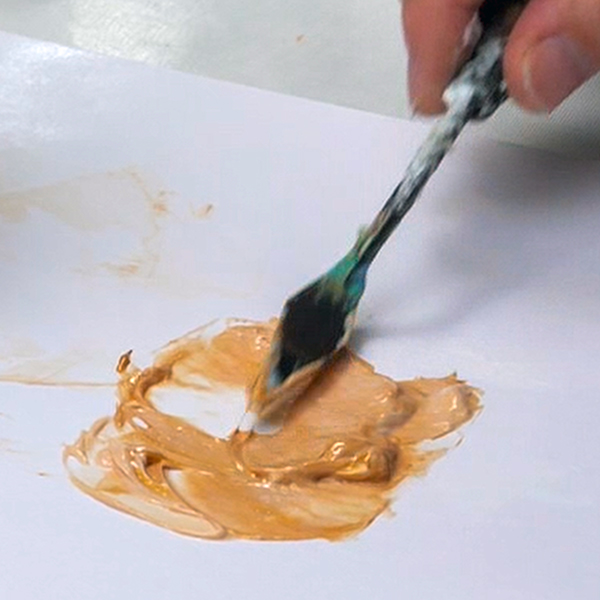
You can use any type of gel for this, but I like using the extra heavy gel because it creates more texture and is the easiest gel for me to apply through a stencil.
What if I don’t Add Enough Paint?
If you don’t add enough paint to your gel, it’s going to be more transparent. This is an opportunity to create unique layers on your projects. You can choose to create layers with lots of paint that are fully opaque. Or you can use less paint with your gel and have a semi-transparent layer on your painting.
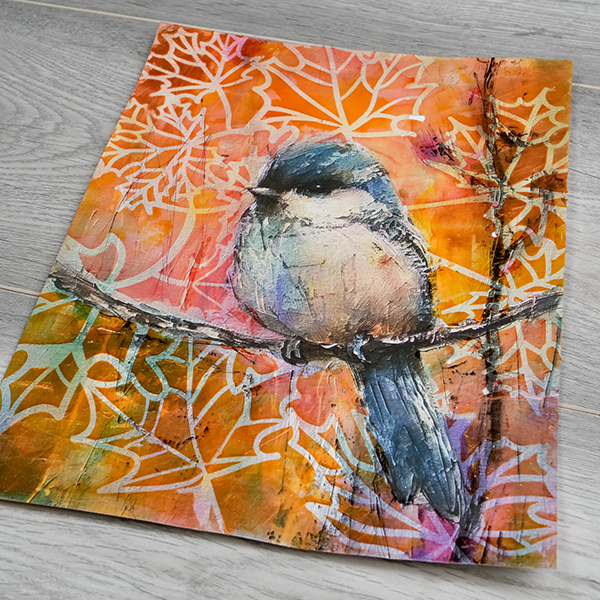
I love using gel mediums because it gives you different creative options when working on your projects.
Can You Use Other Types of Gels?
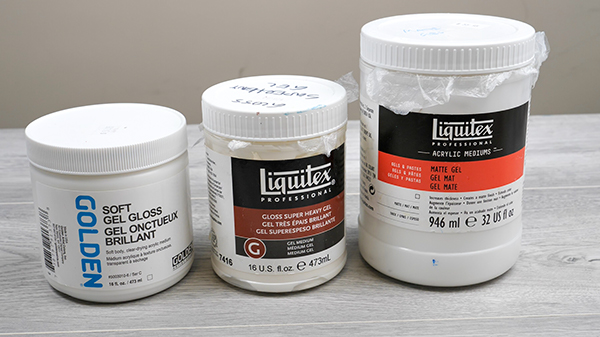
Any acrylic gel medium will work with this technique. This includes soft, regular, heavy, or extra heavy acrylic gel medium. It will also work with unique gels like glass bead gel and granular gels.
Gels also come in a variety of finishes including matte, gloss and semi-gloss. Each finish will affect the look of the project, especially if you’re using metallic paints. When working with metallics, I prefer gloss gel as it doesn’t have a mattifying agent the way matte gel does.
Samples of Acrylic Gels and Pastes in Action
You can use these gels and pastes for stenciling. For more details about these techniques, check out the article below. This is a great article for understanding how to get the best results with stencils.
How to get the Best Results with Acrylic Pastes & Stencils
You can also use these gels and pastes to create full paintings, like this painting that I did with modelling paste and a palette knife.
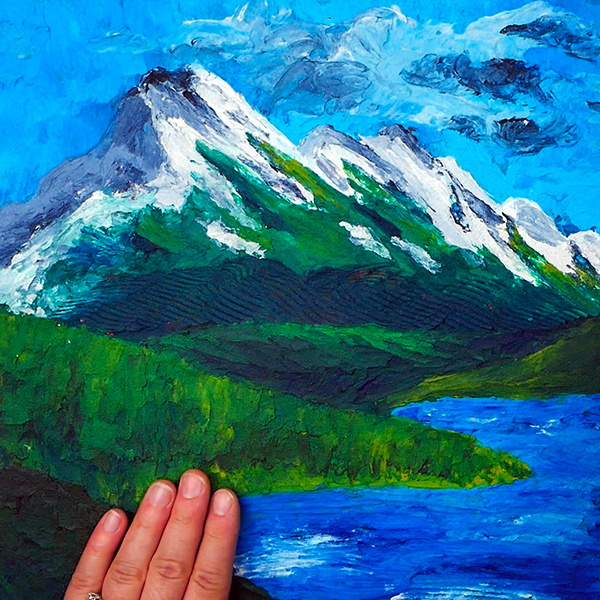
To see another example of how to complete a palette knife painting, check out this article.
Mystified by Acrylic Pastes? How to Color Pastes in 1 Easy Step!
DIY Pastes
If this idea of tinting acrylic pastes in a project interests you but you’re not sure if you want to try it yet, make sure to come back in a few weeks. I’ll be sharing how to make your own DIY pastes to use in your next project!
Project Supply List
Liquitex Modeling Paste is a thick, clay-like putty formulated with an acrylic polymer base and marble dust. Use alone or combine with acrylic colors to build forms and structures on rigid substrates.
Add these under the lids of your acrylic paste containers and you'll never have trouble getting the lids off again! This also prevents your pastes and gels from drying out.
Proudly crafted in the Netherlands, these acrylic paints are value priced and easy to use, making them an excellent choice for the beginning or intermediate artist. They can be mixed with water or mediums, and clean up requires only soap and water.
- Acid-free palette paper, 50 Sheets at 9" X 12"
- Smooth mixing surface against grey paper for a neutral back drop on which to view colors
Proudly crafted in the Netherlands, these acrylic paints are value priced and easy to use, making them an excellent choice for the beginning or intermediate artist. They can be mixed with water or mediums, and clean up requires only soap and water.
Canvas boards are great for making small works of art. This 5" x 7" size is easy to frame, acid-free, pre-gessoed, and created with canvas made from cotton.
Tim Holtz July 2015 color of the month release is Blueprint Sketch. You will love adding this industrial blue color to your scrapbooking stash. This reinker is acid-free, non-toxic, fade-resistant, and water-based.
Distress Inks by Tim Holtz are perfect for adding a vintage, stained, or aged effect to your altered books, scrapbook pages, cards and paper craft projects.
Dr. Ph. Martin's Bombay India inks offer powerful color in a convenient dropper-stopper glass bottle. These highly pigmented India inks not only remain lightfast and permanent but are also totally waterproof when dry.
Specially engineered for Lamy fountain pens, Lamy T52 Ink makes refilling ink effortless and mess free. Each 50 ml bottle features an ink-residue collecting basin and built-in roll of blotting paper around the base.
Not only great for refilling pens, but also for tinting pastes and using as ink washes in mixed media projects.
Flexible Pipette Dropper for Accurate Liquid Transfer. Excellent Suction. Perfect for inks and fluid paints.
Achieve amazing textures and patterns with Golden Crackle Paste. This thick, opaque medium cracks as it dries. Crack size increases with thicker application. It can be tinted with acrylic paints before application or painted over once dry.
Proudly crafted in the Netherlands, these acrylic paints are value priced and easy to use, making them an excellent choice for the beginning or intermediate artist. They can be mixed with water or mediums, and clean up requires only soap and water.
- Modify the weight and surface sheen of acrylic colors
- Designed to maintain paint adhesion, durability, and archival quality
Thicker in consistency than Golden Heavy Body Acrylics, the Golden Heavy Acrylic Gel Mediums hold peaks and dry translucent. They're ideal for thickening, altering sheen, and increasing translucency of acrylic paint.
Our 15x15 cm Craft Stencil, made from durable 250 micron Mylar, offers precision laser-cut designs for clean, sharp lines. Flexible, reusable, and easy to clean, it's perfect for painting, scrapbooking, fabric decorating, and more.
he Worn Lipstick Distress Ink Reinker by Tim Holtz for Ranger Ink gives paper, photos and fibers a weathered, stained or vintage look. The amber glass bottle holds 0.5 oz. of water-based dye ink and has an eyedropper applicator.
Collection of coordinating single sided patterned papers printed on 8.5x11" high quality 80lb cardstock.
Give your projects a timeless, antique effect with the Vintage Photo Distress Ink Pad from Ranger Ink and Tim Holtz. This 2" x 2" warm brown ink pad is perfect for aging paper, enhancing mixed media, and distressing scrapbook layouts and cards with depth and rustic charm.
Not only is the Mini Round Ink Blending Tool cute as a button, but it’s also great for giving you a lot more control when applying a little bit of ink using a pouncing motion when using with stencils.
Water Brush Pens for Watercolor Painting: Blend, glaze and paint with your favorite watercolors as well as with water-soluble colored pencils and markers without the need for a water cup.





